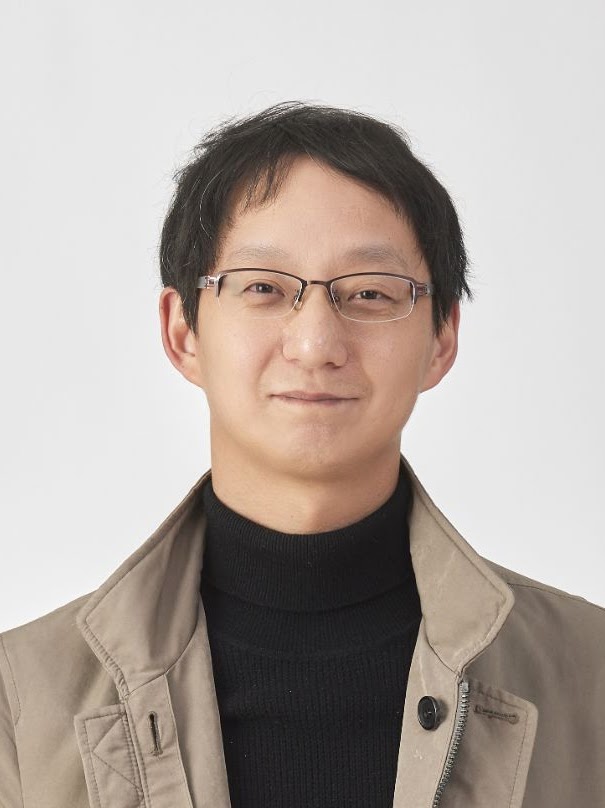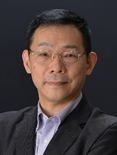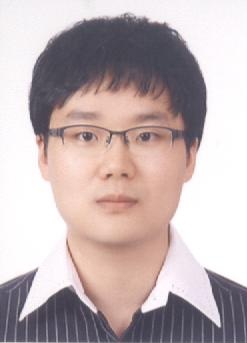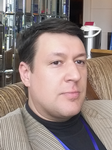Keynote Speaker
Keynote Speaker I

Prof. Tae-Kyun Kim, Korea Advanced Institute of Science and Technology, Korea
Tae-Kyun (T-K) Kim is a full Professor and the director of Computer Vision and Learning Lab at School of Computing, KAIST since 2020, and has been an adjunct reader of Imperial College London (ICL), UK for 2020-2024. He led Computer Vision and Learning Lab at ICL during 2010-2020. He obtained his PhD from Univ. of Cambridge in 2008 and Junior Research Fellowship (governing body) of Sidney Sussex College, Univ. of Cambridge during 2007-2010. His BSc and MSc are from KAIST. His research interests primarily lie in machine (deep) learning for 3D computer vision and generative AI, including: articulated 3D hand/body reconstruction, face analysis and recognition, 6D object pose estimation, activity recognition, object detection/tracking, active robot vision, which lead to novel active and interactive visual sensing. He has co-authored over 100 academic papers in top-tier conferences and journals in the field, and has co-organised series of HANDS workshops and 6D Object Pose workshops (in conjunction with CVPR/ICCV/ECCV) since 2015. He was the general chair of BMVC17 in London, the program co-chair of BMVC23, and is Associate Editor of Pattern Recognition Journal, Image and Vision Computing Journal. He regularly serves as an Area Chair for top-tier vision/ML conferences. He received KUKA best service robotics paper award at ICRA 2014, and 2016 best paper award by the ASCE Journal of Computing in Civil Engineering, and the best paper finalist at CVPR 2020, and his co-authored algorithm for face image representation is an international standard of MPEG-7 ISO/IEC.
Invited Speaker
Invited Speaker I

Prof. Kiyoshi Hoshino
Meiji University, (Professor Emeritus) University of Tsukuba, Japan
He received two doctor's degrees; one in Medical Science in 1993, and the other in Engineering in 1996, from the University of Tokyo respectively. From 1993 to 1995, he was an Assistant Professor at Tokyo Medical and Dental University School of Medicine. From 1995 to 2002, he was an Associate Professor at University of the Ryukyus. From 2002 to 2023, he served at the Biological Cybernetics Lab of University of Tsukuba as an Associate Professor and a Full Professor. He is now a Full Professor at Meiji University. He is awarded Professor Emeritus of University of Tsukuba in 2023. From 1998 to 2001, he was jointly appointed as a senior researcher of the PRESTO "Information and Human Activity" project of the Japan Science and Technology Agency (JST). From 2002 to 2005, he was a project leader of a SORST project of JST. He served as a member of the “cultivation of human resources in the information science field” WG, Special Coordination Funds for the Promotion of Science and Technology, MEXT, a member of “Committee for Comfort 3D Fundamental Technology Promotion”, JEITA, the General Conference Chair of the 43rd Annual Meeting of Japanese Society of Biofeedback Research, and a councilor and director of the Ibaraki Sports Association. He received IJCAI-09 AI Video Award, iFAN 2010 Best Paper Award, Laval Virtual Awards in 2009, 2013 and 2014, ISER 2015 Best Paper Award, and several domestic and international awards.
Invited Speaker II

Prof. Yoosoo Oh, Daegu University, Korea
Yoosoo Oh received his B.S.
degree in Electronics Engineering from Kyungpook
National University, Daegu, Korea, in 2002. He
received his M.S. degree in Information and
Communications in 2003 and his Ph.D. degree in
Information and Mechatronics in 2010 from Gwangju
Institute of Science and Technology (GIST), Korea.
From 2005 to 2006, he was a Visiting Researcher at
the Embedded Interaction Lab, University of Munich,
Germany. From 2010 to 2012, he worked at the Culture
Technology Institute (CTI), GIST, as a Technical
Team Leader and General Team Leader. He was also a
Visiting Scholar at Lancaster University, UK, and a
Researcher at KAIST Graduate School of Culture
Technology (GSCT) in 2012. In 2019–2020, he served
as a Visiting Professor at Georgia Institute of
Technology, USA.
Since joining Daegu University in 2012, he has held
multiple academic leadership positions. He is
currently a Full Professor in the School of Computer
Software Engineering, School of Computer &
Information Engineering. He previously served as
Director of the Basic Education Center under the
SW-Centered University Project (2025) and as
Dean/Head of the School of Computer & Information
Engineering (2025–2026). He has also served as
Department Chair, Head Professor, and Director of
several major research centers, including the Mixed
Reality Convergence Research Center, DU Smart Drone
Center, AZIT MakerSpace Center, and the Gyeongbuk
Technopark–Daegu University Center. In addition, he
led industry–university cooperation initiatives as
Director of the Enterprise Supporting Office of the
LINC Project Group.
Prof. Oh is the Founder and CEO/CTO of NWI Co.,
Ltd., an AI-based Edutech company established in
2021. He also serves as an Auditor of the
Daegu-Gyeongbuk Metaverse Industry Association. He
has been a Board Member of the Korea Society of
Industrial Information Systems (since 2019) and the
HCI Korea Society (since 2014), and is a member of
the ISMAR 2025 Organizing Committee.
His research focuses on machine learning, deep
learning for Edutech, industrial AI applications,
intelligent middleware, human–AI interaction, and AI
convergence systems.
He has received numerous awards and honors,
including the Minister of Education Award (2025),
selection among the Top 50 Outstanding Research
Achievements supported by the National Research
Foundation of Korea, the Albert Nelson Marquis
Lifetime Achievement Award (2017), a Commendation
from the Korea Industry-Academia Cooperation
Association (2018), and the Daegu University
Excellent Research Award in Academic Publications
(2016).
Invited Speaker III
Prof. Maxim Bakaev, Novosibirsk State Technical University, Russia
Maxim Bakaev got his PhD degree in Software Engineering in 2012. He currently works as Associate Professor of the Automated Control Systems department of Novosibirsk State Technical University (NSTU), Russia. He is also the Acting Head of the Data Collection and Processing Systems department. Previously, he received his Master Degree in Digital Design from Kyungsung University, South Korea. His research interests include Human-Computer Interaction, Universal Design, Web User Interfaces, User Behavior Models, Knowledge Engineering, Machine Learning, etc. (https://www.researchgate.net/profile/Maxim-Bakaev) His recent research results are related to perception of visual complexity in graphical user interfaces (UIs) and its relation to Gestalt principles and compression algorithms. So, he has proposed the Index of Difficulty for tasks that involve visual-spatial working memory. He oversees the development of the Web UI Measurement Platform (http://va.wuikb.info/) that integrates online services for collecting ML data for UI assessment. He has served as a committee member for several international conferences, particularly as PC Co-Chair for ICMSC 2018 and ICWE 2019, as Demo & Posters Chair for ICWE 2020, and as Workshops Co-Chair for ICWE 2021. He also served as a reviewer for several international conferences and journals, including CHI, UIST, International Journal of Human-Computer Studies, Applied Ontology, Symmetry, etc. He is the Guest Editor for "Complexity in Human-Computer Interfaces: Information-Theoretic Approaches and Beyond", a Special Issue in Mathematics journal. He is also a Section Editor for the Journal of Web Engineering. He has acted as PI or participant in several research grants, domestic and international. In 2016, he received Novosibirsk City Hall award in science and innovations as a "Best young researcher in higher education institutions". Under his supervision, more than 20 Master and Bachelor students graduated.
Invited Speaker IV

Assoc. Prof. Ir. Dr. Kim Seng Chia , Universiti Tun Hussein Onn Malaysia, Malaysia
Ir. Dr. Kim Seng Chia is an Associate Professor at Universiti Tun Hussein Onn Malaysia (UTHM). He is a Chartered Engineer (CEng, UK) and Professional Engineer (BEM, Malaysia) with expertise in machine learning and embedded system applications. He holds a PhD in Electrical Engineering from Universiti Teknologi Malaysia (UTM), where his research focused on non-destructive fruit quality prediction using near-infrared spectroscopy. Dr. Chia has led multiple research grants on intelligent quality assessment and environmental monitoring, including honey, air, and wastewater. His applied research employs ESP32 and FreeRTOS for real-time data processing and automation, and he delivers HRD Corp claimable industrial training on embedded and IoT systems. He currently serves as Editor of the International Journal of Integrated Engineering (IJIE) and contributes actively to global academic communities as a forum speaker, session chair, technical committee member, technical reviewer, and IET mentor for Chartered Engineer registration.
